Can Netanyahu survive the storm gathering around him?
The Israeli prime minister has so far proven resilient to all kinds of setbacks, but now faces huge challenges
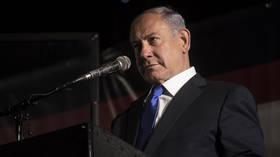
In recent weeks, many events have unfolded that could seriously disrupt the plans of Israeli Prime Minister Benjamin Netanyahu. However, his political career shows that he has repeatedly emerged from similar challenges, while only strengthening his position.
The Prosecutor of the International Criminal Court (ICC), Karim Khan, has asked the ICC to issue arrest warrants for Netanyahu along with Defense Minister Yoav Gallant and three leaders of the Palestinian group Hamas. Khan believes that they are all potentially guilty of war crimes committed during the Hamas attack on Israel and the subsequent Israeli military operation in Gaza.
Adding to Netanyahu’s troubles, on May 28, three European countries – Spain, Ireland, and Norway – will recognize the State of Palestine, with Slovenia and Belgium potentially joining them later. Western countries are beginning to shift away from their unwavering support for Israel.
Last December, several Global South countries, including South Africa, also took a stand. South Africa filed a complaint with the International Court of Justice (ICJ) against Israel, accusing it of genocide in Gaza.
As we can see, many storm clouds have gathered over the Israeli authorities, but let’s try to understand where this might lead.
The ICC 'outrages' Bibi
Khan stated that there are reasonable grounds to believe Netanyahu and Gallant are responsible for using starvation as a method of warfare, attacking civilians, and depriving them of essential resources such as food, water, and medical supplies. The accusations have sparked strong criticism from Israel and its allies, including the US. President Joe Biden called the ICC’s decision “outrageous”.
Israeli and American officials claimed that the ICC warrants undermine international law and moral principles by equating the actions of a democratically elected government with those of a terrorist organization. Israel and the US, neither of which are ICC members, are considering sanctions against the court and its leadership.
Netanyahu responded by saying, “Mr. Khan is creating a dangerous precedent that undermines the right of any democracy to defend itself from terrorist organizations and aggressors.” His office later described the ICC’s decision as a “blood libel” and a “crossing of the red line.”
Israeli President Isaac Herzog called on the international community to condemn the prosecutor’s decision, noting that the court’s jurisdiction is recognized only by the 124 countries that have ratified the Rome Statute. Several countries – including the US, Israel, China, Iran, India, and Russia – do not recognize the ICC’s jurisdiction.
Despite the lack of support for the ICC’s move from Israel’s major allies – the US, UK, France, and other Western countries – media coverage has been largely negative for the Israeli authorities. While Israel does not recognize the ICC’s jurisdiction, Palestine, as a permanent observer at the UN, does, allowing the court to begin its investigation. In response to threats and pressure from Israel and the US, the ICC warned that such attempts could be seen as interference in the administration of justice and contrary to the principles of the Rome Statute.
Amid these events, a controversy with Berlin emerged. German law enforcement agencies are obliged to comply with ICC directives if an arrest warrant is issued by the chief prosecutor, as stated by government spokesman Steffen Hebestreit. “We adhere to the law,” Hebestreit said, according to Spiegel.
Thus, even though no ICC arrest warrant for Netanyahu has been issued yet, the situation has already caused significant international resonance, increasing tension in the Israeli-Palestinian conflict and threatening to complicate diplomatic efforts to resolve the situation. Even if an arrest warrant is issued, it is unlikely that Netanyahu will be arrested and handed over to the ICC. However, it is clear that the situation negatively impacts the reputation of the current leaders of the Jewish state.
Western allies abandon Netanyahu
As detailed previously, the relationship between Joe Biden’s administration and the Netanyahu government is a complicated one, and misunderstandings are only likely to deepen as IDF operations in Gaza continue.
With the onset of military action in the southern part of Gaza, US Secretary of Defense Lloyd Austin confirmed Washington’s decision to delay the transfer of a batch of ammunition to Israel due to the situation around Rafah.
“We have made it very clear that Israel cannot launch a large-scale attack on Rafah without considering the civilians caught in the theater of operations and without protecting them. We assessed the situation and paused the delivery of a batch of powerful ammunition,” The Times of Israel quoted him as saying during a Senate hearing.
Bloomberg, citing sources, noted that this batch included 3,500 bombs. Meanwhile, the US remains Israel’s largest arms supplier, with nearly 70% of Israel’s arms imports between 2014 and 2018 coming from the US, according to the Stockholm International Peace Research Institute. Therefore, restrictions on arms supplies could complicate the situation for the Israeli armed forces and even create new threats in the short term.
Many experts believe that Washington is playing a “double game.” On the one hand, it declares support for Israel, threatens the ICC, and does not exert direct pressure on the Israeli government. But on the other, it limits arms supplies, actively interacts with Israeli War Cabinet Minister Benny Gantz (Netanyahu’s main internal political rival), stirs negative rhetoric around Bibi through the media, and sometimes even covertly influences international organizations and NGOs to pressure the Israeli prime minister and his entourage.
Relations are also strained with other Western allies. On May 28, three European countries are expected to recognize Palestine. The leaders of Ireland, Norway, and Spain announced their intention at a time of mass pro-Palestinian rallies, with protesters calling for an immediate ceasefire in Gaza.
One might ask: why these three countries? Firstly, such a decision is motivated by the authorities’ desire to reassure their citizens and demonstrate that their voices matter. Secondly, they joined a number of their European partners who previously recognized Palestine (Bulgaria, Hungary, Cyprus, Malta, Poland, Romania, Slovakia, Czech Republic, Sweden), with Belgium and Slovenia expected to follow soon. Thirdly, the European Parliament elections will be held from June 6 to 9, and recognizing Palestine could garner additional votes for allies of Spanish Prime Minister Pedro Sanchez.
So, this is a good PR move for the initiators. It will not significantly impact the conflict, since 146 UN member states have officially recognized Palestine in previous decades. However, it is another signal to the Israeli authorities, with the West led by Washington trying to pressure them. It is becoming increasingly clear that Prime Minister Netanyahu has become inconvenient and uncontrollable for them.
Bibi feels growing pressure and has already recalled his ambassadors from three countries for consultations.
Recently, a video was published in Israel showing Palestinian militant groups capturing and taking mutilated Israeli women to Gaza. Why publish this now? Largely to quell anti-government sentiment among the citizens, who fill the squares in major Israeli cities on Saturday evenings, expressing dissatisfaction with the Netanyahu far-right cabinet’s actions. It also sends a message to the international community, showing the brutality of Israel’s adversaries in Gaza.
Additionally, there is a new decision by the International Court of Justice on a case filed by South Africa, joined by Türkiye, Egypt, and several other countries. The ICJ in The Hague ruled that Israel must immediately cease its military operation in Rafah.
“The Court considers that, under the Genocide Convention, Israel must immediately cease its military offensive and any other actions in the Rafah governorate that may create living conditions for Palestinians in Gaza leading to their partial or total physical destruction,” said the court president, Nawaf Salam. This call was supported by 13 of the 15 judges.
The court also ruled that Israel must preserve all evidence of the alleged genocide and provide unrestricted access to Gaza for investigation commissions, fact-finding missions, or any other bodies authorized by the UN to probe genocide claims. The panel of judges also demanded that Israel open the Rafah crossing on the border with Egypt for humanitarian aid deliveries. Salam added that Israel must report to the court within a month on the implementation of the verdict.
What could all this lead to?
It has been almost eight months since latest major escalation in the Israeli-Palestinian conflict erupted. Internally, no significant changes have occurred around the conflict; there are only numerous casualties on both sides. However, this time the situation seems different concerning external positions. The Palestinian resistance has successfully garnered international support, initially from crowds in the streets and now from official representatives.
It is premature to speak about the full recognition of a Palestinian state as a bona fide UN member, as countries like the US and UK block the UN General Assembly’s recognition of Palestine, citing the necessity of a peace agreement between Palestinians and Israelis before such a step can be taken.
Within societies themselves, the situation is also complex. Attempts to resolve the conflict based on the “two states for two peoples” formula moved the peace process forward in 1993 with the Oslo Accords. These agreements included the recognition of the Palestinian National Authority (PNA) and the implementation of UN Security Council Resolutions 242 and 338. The issue of borders remained contentious, even when considering the pre-1967 lines.
The initial euphoria and belief that peace was imminent did not last long. On November 4, 1995, Yigal Amir, a student and Jewish extremist, assassinated Prime Minister Yitzhak Rabin, citing his desire to “protect the people of Israel from the Oslo Accords.” There were also many opponents among Palestinians, some of whom openly criticized PLO leader Yasser Arafat’s actions. After Arafat’s death in 2004, shrouded in mystery (many believe he was poisoned), the normalization process stalled.
Netanyahu understands all this better than anyone. He undoubtedly sees and comprehends the actions of Western allies. Bibi has always pursued his policies, relying solely on himself and his closest associates. Therefore, these “political games” are likely to continue.
Years of conflict have formed radicals on both the Israeli and Palestinian sides. Thus, a resolution will likely require a comprehensive approach and a consensus among leading world powers and the elites of both sides. Unfortunately, it seems that the Israeli-Palestinian question, like the broader Middle East region, may need to undergo a catharsis through destructive warfare, after which a new socio-political landscape and security architecture can begin to take shape.
https://www.rt.com/news/598294-netanyahu-israel-way-power/
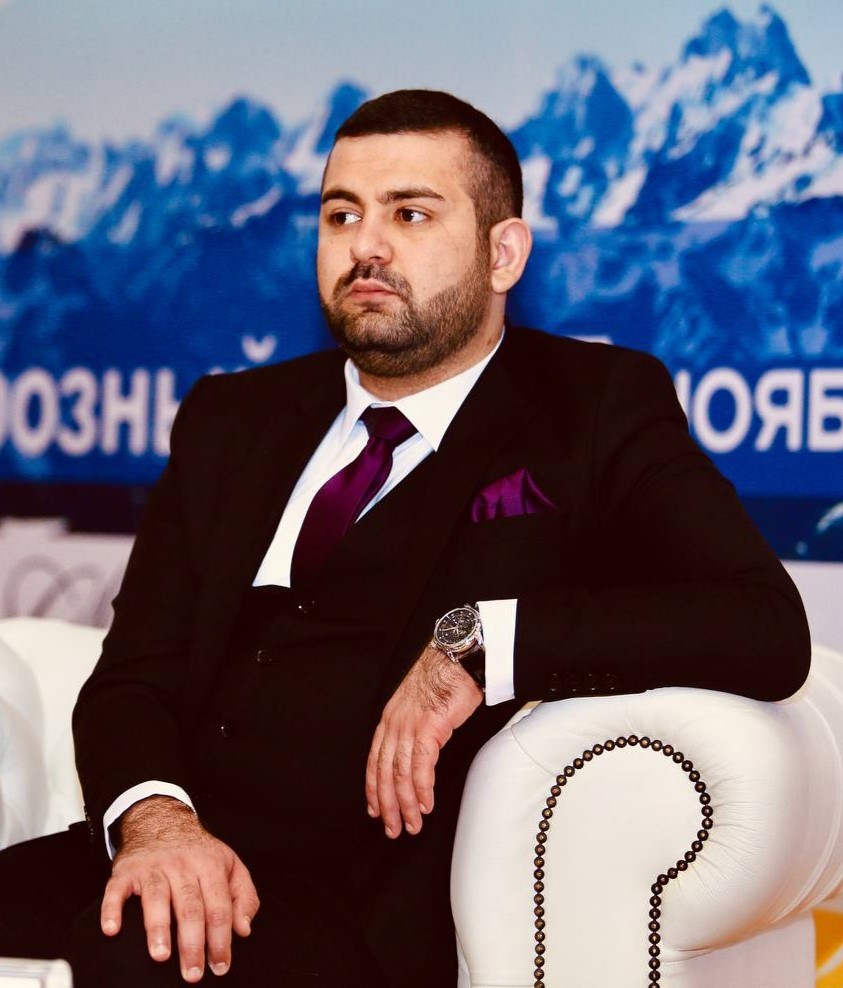
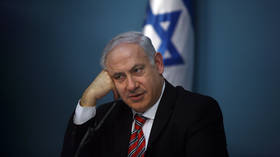
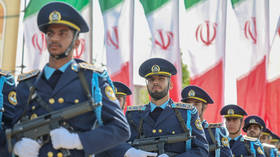
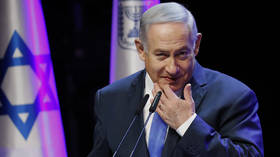

0 Comments:
Post a Comment
Subscribe to Post Comments [Atom]
<< Home